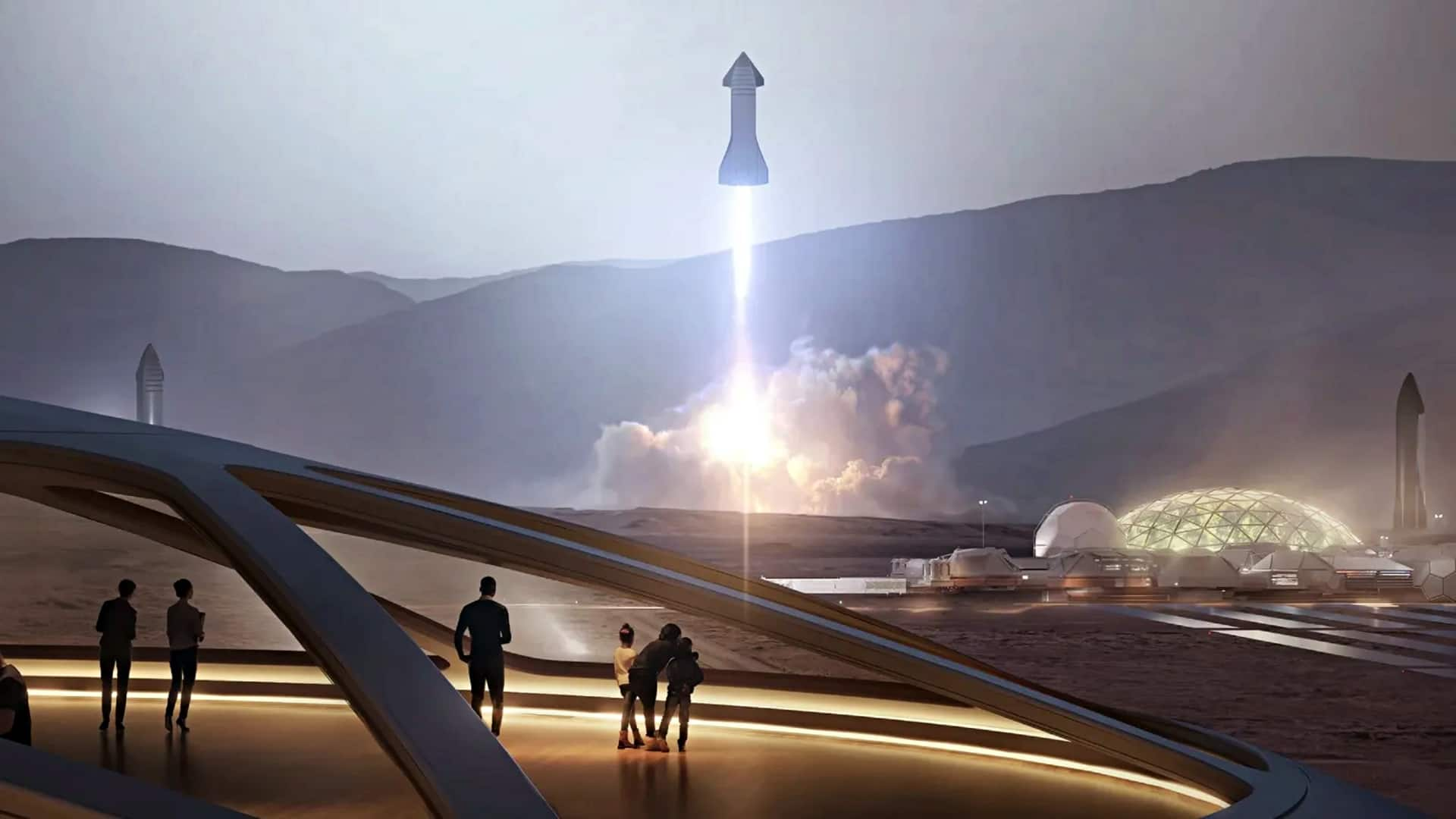
Terraforming with thermonukes? How Elon Musk plans to colonize Mars
What's the story
Elon Musk, the founder of SpaceX, is fast-tracking his plans to colonize Mars with a focus on practical aspects such as dome habitats, spacesuits, and human reproduction on the red planet. Internal documents viewed by The New York Times reveal that SpaceX teams are diligently working on designing a Martian city. Musk's ambitious timeline now anticipates one million people living on Mars within 20 years, a significant acceleration from his previous estimate of 40 to 100 years.
Martian challenges
Overcoming Mars's hostile environment
Despite the harsh conditions on Mars, including barren terrain, icy temperatures, dust storms, and unbreathable air, Musk remains steadfast in his mission to establish a civilization there. His vision is reflected in the six companies he leads or owns, each potentially contributing to an extraterrestrial colony. Notably, The Boring Co., Musk's private tunneling venture, was initiated partly to prepare equipment for burrowing under Mars's surface.
Mars governance
Musk's strategy: Social platforms and Cybertrucks
Musk has revealed that his acquisition of the social platform X was partly to test how a citizen-led government ruling by consensus might function on Mars. He also envisions Martian residents driving a version of the steel-paneled Cybertrucks produced by his electric vehicle company Tesla. In 2022, when Musk testified about his Tesla pay, he stated that "It's a way to get humanity to Mars because establishing a self-sustaining city on Mars will require a lot of resources."
Energy production
Thermonuclear blasts to generate solar energy
To counteract Mars's icy temperatures, Musk plans to generate warmth through a series of thermonuclear explosions, essentially creating an artificial Sun. This, coupled with hundreds of solar panels, is expected to provide energy for the Martian city. The proposed city layout includes a central large dome surrounded by several smaller domes, forming a communal living space. Despite skepticism from some quarters about the feasibility of his plans, Musk remains undeterred in his mission to colonize Mars.
Reproduction
Musk's personal involvement in Mars research
According to NYT, Musk has personally volunteered his sperm for research into human reproduction on Mars, marking a shift toward more tangible planning for life on the red planet. A medical team at SpaceX is currently investigating the feasibility of human procreation off Earth. However, contrary to the report, Musk said in a post on X that he had not volunteered his sperm and stated that no one at SpaceX had been instructed to work on a Martian city.